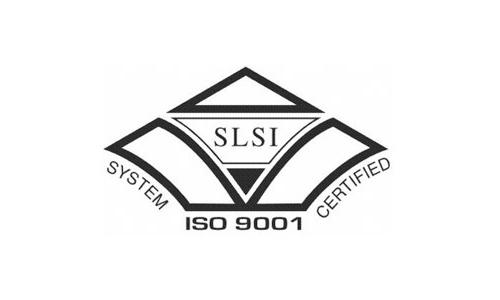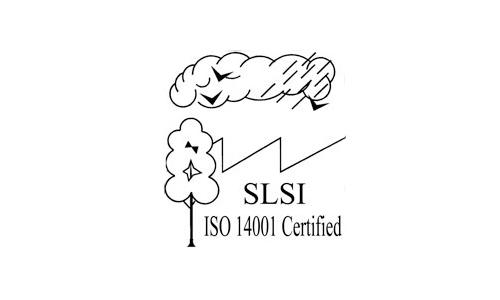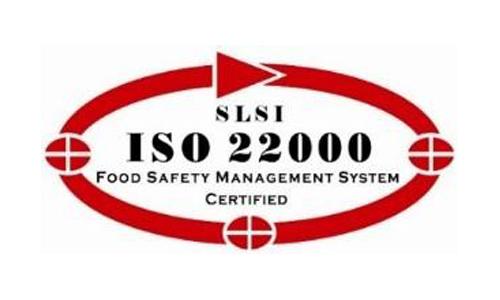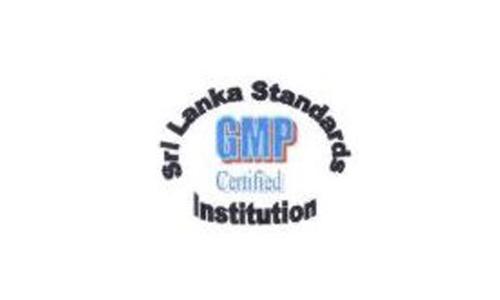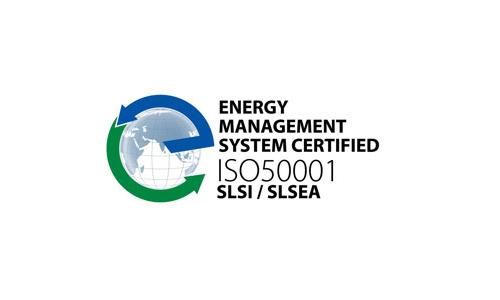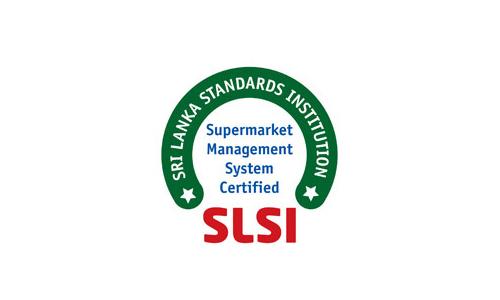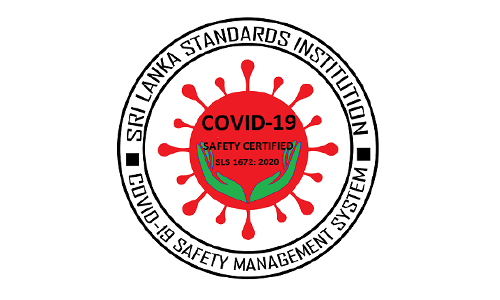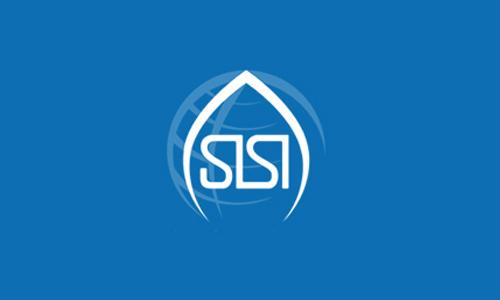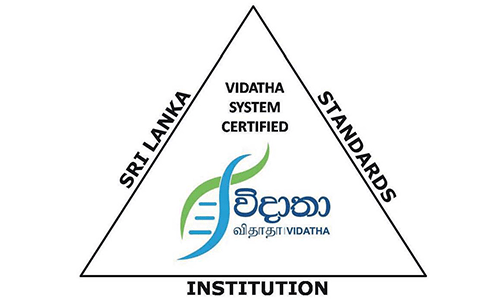Systems Certification
The systems certification function of SLSI plays a vital role in promoting quality Assurance activities in all sectors of the economy and operates the following certification schemes.
General Downloads
ISO 9001:2015 Quality Management Systems (QMS) Certification
ISO 9001:2015 is an effective business improvement model which gives directions to assist you to implement a reliable system to offer consistent quality products and services while assuring the sustainability of the organization and needs and expectations of the customers and all stakeholders.
Establishing and implementing a QMS in your organization as per ISO 9001:2015 will provide you a proactive approach to identify and mitigate the risks associated with your business and thereby planning and implementing actions to address risks and opportunities to achieve improved results and prevent negative effects.
Quality Management principles are the pillars of ISO 9001:2015:
- Customer focus;
- Leadership;
- Engagement of people;
- Process approach;
- Improvement;
- Evidence-based decision making; and
- Relationship management.
Benefits of ISO Certification
There are enormous advantages to your organization certified with ISO 9001:
- Delivering high-quality products/services.
- Improve capability of providing consistent quality products/services
- Streamlining the processes with minimized deviations;
- Improved cycle time;
- Cost reduction;
- Expand and diversify markets;
- High volumes of income;
- Develop better relationships with stakeholders;
- Doors open for new business opportunities;
- Enhanced productivity;
- Higher levels of customer satisfaction
- Build relationship with the stakeholders:
- Customer-focused organization;
The benefits of ISO go far beyond your operations to every aspect of the business, including sales and marketing, strategic planning and employee engagement.

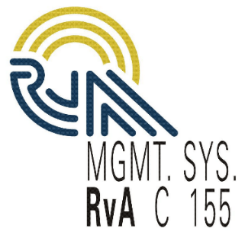
- Food Products, Beverages and Tobacco
- Pharmaceuticals, limited to Ayurvedic Drugs and Ayurvedic Therapeutic Products
- Textile and Textile Products
- Rubber and Plastic Products
- Electrical and Optical Equipment
- Leather and Leather Products
- Chemicals, Chemical Products and Fibres
- Non-Metallic Mineral Products
- Concrete, Cement, Lime, Plaster, etc.
- Transport, Storage and Communication (excluding Communication)
- Basic Metals, Minerals and Fabricated Metal Products
- Wood and Wood Products
- Publishing Companies (excluding Reproduction of Recorded Media)
- Printing Companies
- Hotels and Restaurants
- Pulp, Paper and Paper Products (excluding Manufacture of Pulp)
- Construction
- Banking
- Education
Scope Sectors Accredited By Sri Lanka Accreditation Board (SLAB)
- Manufacture of Food Products, Beverages and Tobacco Products
- Manufacture of Textiles and Wearing Apparels
- Manufacture of Leather and Leather Products
- Manufacture of Wood and Wood Products
- Manufacture of Paper and Paper Products
- Printing
- Manufacture of Chemicals and Chemicals Products
- Manufacture of basic Pharmaceutical Products and Pharmaceutical Preparation
- Manufacture of Rubber and Plastic Products
- Manufacture of Non-metallic Mineral Products (excluding Rubber & Plastic Products)
- Manufacture of Basic Metals and Fabricated Metal Products except Machinery and Equipment
- Manufacture of Computer, Electronic and Optical Products
- Manufacture of Electrical Equipment
- Construction of Building and Civil Engineering
- Building Completion & Finishing
- Warehousing and Support Activities for Transportation
- Accommodation & Food Service Activities
- Publishing Activities
- Financial Services, Insurance & Pension Funding Services
- Education
- Public Administration
- Telecommunication
ISO 14001:2015 Environmental Management System (EMS) Certification
Environmental Management System (EMS) certification provides organization with guidance on how to establish, implement, maintain and improve EMS within the organization.
The ISO 14001:2015 paves way to achieve United Nations Sustainable Development Goals by balancing environment, society and economy to meet the needs of present without compromising the ability of future generations.
It also assures, protecting of environment, preventing or mitigating adverse impacts to environment, conservation of natural resources and enhancing environmental performance using life cycle perspective.
Benefits of EMS Certification
There are advantages to your organization certified with EMS implementation:
- Establish environment friendly culture;
- Initiate eco-friendly products, practices and services;
- Minimize environmental pollution;
- Initiate natural resource conservation;
- Reduction of waste;
- Maximization of resource utilization;
- Reduction cost by minimizing waste;
- Achieve regulatory compliance;
- Meeting customer’s environmental expectations;
- Maintaining positive public relations;
- Enhancing image & market share;
- Meeting supplier certification criteria.

Food Safety Management System Certification Schemes
ISO 22000: 2018 Certification
ISO 22000:2018 is a standard developed by the International Organization for Standardization to deal with food safety.
HACCP Certification
HACCP refers Hazard Analysis and Critical Control Points, which is an internationally recognized system certification scheme for food safety management. SLSI offers HACCP certification based on SLS 1266:2011 standard.
Both ISO 22000 and HACCP certifications specify requirements for a food safety management system where an organization in the food chain needs to demonstrate its ability to control food safety hazards in order to ensure that food is safe at the time of human consumption.
Basic Requirements for both ISO 22000:2018 and HACCP Certifications
- Develop a Food Safety Policy
- Develop Food Safety Objectives
- Appoint a Food Safety Team and a Food Safety Team Leader
- Implementation of food safety practices to address the respective pre-requisite programmes and develop relevant procedures as applicable
- Develop a Hazard Control Plan and implement record keeping for monitoring of the CCPs and OPRPs
- Identification of applicable emergency situations
- Ensure staff competence
- Identification of food safety related responsibilities
- Take corrections and corrective actions for non-conformities
- Ensure internal and external communication
- Implement evaluation and monitoring of external providers
- Implement verification of the Hazard Control Plan and PRPs
- Conduct Food Safety internal audits and Management Review meetings
Benefits of ISO 22000/ HACCP Certifications
- Increased consumer and customer confidence
- Enhanced product Safety and Product Quality
- Competitive marketing and promotional edge
- Opportunities for international recognition
- Reduced risk of food contamination, ability to recall and avoiding legal action
- Applies to all organizations in the global food supply chain
- Internationally recognized standard
- Complies with the Codex HACCP principles
- An auditable standard which provides a framework for third-party certification.
- The structure aligns with the management system clauses of ISO 9001:2015 and ISO 14001:2015.
- System approach, rather than product approach
- Improved documentation
- Systematic management of prerequisite programs
- Increased due diligence
- Dynamic communication on food safety issues with suppliers, customers, regulatory bodies and other interested parties
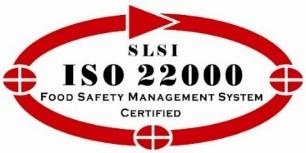
Accredited Scope Sectors
- Farming of animals
- Food Manufacturing
- Animal Feed Production
- Catering
- Production of Food packaging and packaging material
- Distribution
- Transport & Storage
Other Scope Sectors
- Farming - Plants
- Equipment manufacturing
- Production of Biochemical
- Services related to the safe production of food eg: Water supply, Pest control, Cleaning services, Waste disposal
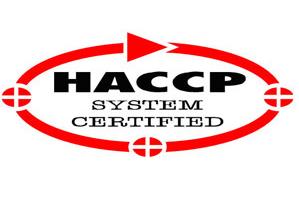
Good Manufacturing Practices Scheme (GMP)
Good Manufacturing Practices (GMP) is a system for ensuring that products such as food, cosmetics and coir are consistently produced and controlled according to national and international standards. GMP covers all aspects from the primary production, receiving raw materials, up to the dispatch of final products and services.
When establishing a system for GMP the areas to be focused on:
- Design, facilities, and maintenance of establishment;
- Control of operations;
- Cleaning and sanitation;
- Personal hygiene of staff;
- Transportation;
- Training;
- Product compliance;
- Pest control
- Waste management
- Packaging and labeling etc.
Scope Sectors for GMP Certification
The certification scheme for systems for Good Manufacturing Practices (GMP) is based on national and international standards on codes of practice available for the related scope sector.
- Establishments providing/Manufacturing and Processing food & beverage
- Food Serving establishments
- Food Packaging
- Cosmetics and traditional medicine
- Cleansing materials
- Compost fertilizers
- Coir fiber and coir fiber pith substrate
Benefits
- Establishes company reputation
- Develops consumer confidence
- Enhances competitiveness
- Improve the productivity
- Marketing tool for promotion of sales
- Compliance with legal requirements
- Access to the International trade
- Approach to a higher level of System Certification
- Motivation for employees
- Even affordable for the small and medium scale organizations
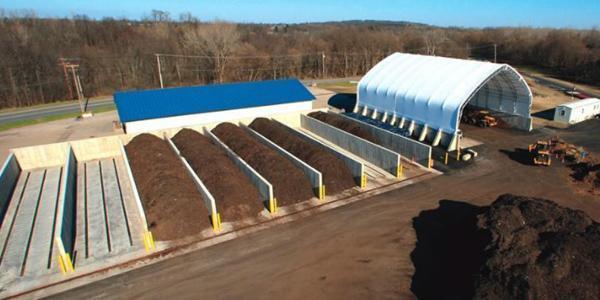


Occupational Health & Safety Management System Iso 45001:2018 (OH&SMS) Certification
ISO 45001:2018 specifies requirements for an occupational health and safety (OH&S) management system, to enable organizations to provide safe and healthy workplaces by preventing work-related injury and ill health.
ISO 45001:2018 is applicable to any organization that wishes to establish, implement and maintain an OH&S management system to improve occupational health and safety, eliminate hazards and minimize OH&S risks, ISO 45001:2018 helps an organization to achieve the intended outcomes of its OH&S management system.
ISO 45001:2018 is applicable to any organization regardless of its size, type and activities. It is applicable to the OH&S risks under the organization's control, taking into account factors such as the context in which the organization operates and the needs and expectations of its workers and other interested parties.
Benefits Of Implementing ISO 45001 Certification
- Reduce potential hazards and risks at workplace;
- Reduce workplace injuries and illnesses;
- Reduces incidents and accidents at the workplace;
- Reduce insurance premiums;
- Reduce compensation costs;
- Reduce workplace injuries and illnesses;
- Achieve improved health and safety of employees.
- Fulfilment of legal requirements and other stakeholder requirements;
- Reduction or prevention of worker loss time hours and potential prosecution.
- Establish a safety culture in organizations;
- Enhances the involvement of leadership and participation of workers;
ISO 50001:2018 Energy Management Systems (EnMS) Certification
ISO 50001:2018 outlines the energy management processes considered to be the current best practice globally. It provides a shortlist of activities for establishing policies, processes, procedures and specific energy-tasks to meet your organization’s energy objectives. It requires the organization to define the desired energy performance, and work towards achieving the stated objectives. Regardless of the size, location or industry, this system can be implemented within any organization. As with other ISO management systems standards, the energy management system in ISO 50001 is based on the Plan, Do, Check and Act framework. It can be used independently, or be aligned or integrated with other management systems.
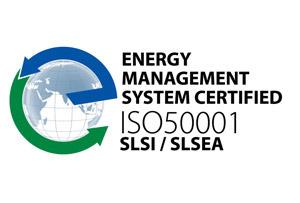
Benefits gained from the ISO 50001 certification
- Reduce Cost
Reduce energy costs via a structured approach to identifying, measuring and managing identify, measure and manage your energy consumption.
- Improve Business Performance
Drive greater productivity by identifying technical point solutions and affecting behavioral change to reduce energy consumption.
- Engage Top Management
Top Management will consider energy management a key business issue.
- Comply with legislation and increase your sustainability
Meet current or future mandatory energy efficiency targets and/or the requirements of GHG emission reduction legislation.
- Reduce your GHG emissions
Meet stakeholder expectations or obligations now and in the future.
- Formalize Energy Policy and Objectives
Create respect for the energy management policy and embed energy efficient thinking in your organization.
- Integrate your management systems
Align your EnMS with existing management systems for incremental benefit
- Secure Energy Supply
Understand your energy risk exposure and identify areas of the organization at greatest risk.
- Drive Innovation
Develop opportunities for new products and services in the low-carbon economy of the future.
- Flexible and Scalable
Applicable to any organization, large or small and from any industry
Organic Certification Scheme
It assures that the food or other agricultural products are produced using methods that do not involve modern synthetic inputs such as, pesticides & chemical Fertilizers, do not contain GMOs, not produced using irradiation, industrial solvents or chemical additives. As a management system which is in harmony with nature, organic Farming and fulfil consumer demands by placing emphasis on the safeguard of soil and water the enrichment of biodiversity and the responsible use of energy and natural resources.
Applicable scope sectors
- Production, processing, handling, storage & transportation of organically produced agricultural products
- Unprocessed agricultural & livestock products
- Processed agricultural & livestock products intended for human consumption containing one or more ingredients that are agricultural and / or livestock origin.
- Feed stuff essentially intended for animal consumption
- Agricultural & veterinary preparations that are intended for use in the production of organic material
Super Market Management Certification Scheme
Sri Lanka Standards Institution (SLSI) has introduced a certification scheme to certify best practices of Super markets. It was the world’s first and only certification scheme which targets the functions and activities of Super Markets.
The applicable Sri Lanka Standard is SLS 1432:2011(Requirements for Good Practices for Super markets) which specifies requirements for Good Hygienic Practices (GHP) to be maintained in Super markets.
This standard can be used as a guidance for Super markets and interested parties to ensure safety, quality and suitability of materials during receiving, storage, preparation, display and sale and manufacturing of food items including bakery items.
Requirements
This certification scheme covers good practices of food stuff as well as non-food items including household used hazardous chemicals (such as pest control chemicals, cleaning chemicals…etc..) which are stored in the warehouse and displayed in the outlet for sale.
- Structure of the supermarket
- Equipment and facilities
- Temperature control
- Product handling
- Stock rotation
- Cleaning
- Personal hygiene
- Display of open food
- Training
- Pest control systems
- Readiness for emergency situations
- Transport
- Adequate water supply
- Adequate ventilation
- Adequate lighting
- Waste disposal systems
- Good practices for non-food items
Benefits of obtaining Super market certification
- Increases customer confidence
- No chances for risk of food contamination
- Documented information facilitates ability to recall the products
- Helps in meeting regulatory requirements
- Provide suitable storage conditions for the products as necessary
- Enhance the product safety
- Provides the opportunity to be the best in competitive marketing
- It is a good opportunity for national and international recognition
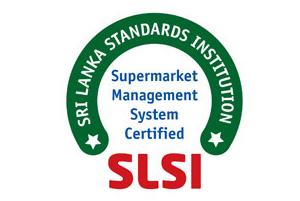
Covid-19 Safety Management System Certification
Sri Lanka Standards Institution provides a great opportunity to any organization to continue organizational operations while ensuring Covid-19 safety and controlling spreading of COVID-19 through an independent, third party certification. This certification enables the organization to demonstrate organizational ability and commitment on providing safety from Covid-19 for all interested parties through its activities, including outsourced activities, products and services offered by the organization.
Sri Lanka Standard SLS 1672:2020 on "Covid-19 safety management systems requirements" is applicable for certification for any organization regardless of type, size or nature of the activities performed by it to ensure Covid-19 safety within the context of the organization
Benefits Of Covid-19 Safety Certification
- Reduce the risk of COVID-19 Ability to improve organizational safety practice;
- Ensure health & safety of all interested parties against spreading of COVID-19;
- Enhancing staff morale to work in a safer organization;
- Ability to improve stakeholder confidence to continue with business operation;
- Possibility to integrate the COVID-19 safety management system with the organization's business processes, overall management structure and existing management systems
- Ability to align organizational practices to meet the COVID-19 safety requirements through an internal— verification process and to take preventive actions against potential threats
- Projecting as a socially responsible organization in the global fight against COVID- 19 pandemic.
- Achieve global recognition
ISO 37 001:2016 Anti-bribery Management Systems (ABMS) Certification
The certification scheme for Anti- Bribery Management System Certification is based on ISO 37001:2016 Anti –Bribery Management System Requirements with Guidance for use. This Sri Lanka Standard specifies requirements and provides guidance for establishing, implementing, maintaining, reviewing and improving an anti-bribery management system. The system can be standalone or can be integrated into an overall management system.
This standard is applicable only to bribery. It sets out requirements and provides guidance for a management system designed to help an organization to prevent, detect and respond to bribery and comply with anti-bribery laws and voluntary commitments applicable to its activities.
The requirements of this standard are generic and are intended to be applicable to all organizations (or parts of an organization), regardless of type, size and nature of activity, and whether in the public, private or not-for-profit sectors
This standard specifies implementation of policies, procedures and controls by the organization itself, which are reasonable and proportionate according to the bribery risks that the organization faces. The objective of this management system is to help the organization implement reasonable and proportionate measures designed to prevent, detect and respond to bribery.
Benefits of Anti Bribery Management Systems Certification
There are benefits to your organization certified with ISO 37001:
- Reduce social, moral, economic & political concerns;
- Assures good governance;
- Enhance organizational development;
- Easy to face competition;
- Ensure justice;
- Safeguard human rights;
- Decreases the cost of doing business;
- Reduces uncertainties into commercial transactions;
- Build trust with organizations
ISO 14001:2015 Environmentl Management Systems Phased Implementation (PHASED EMS) Certification
The ISO 14001:2015 (EMS) certification is focused on minimizing the environmental pollution and reducing the adverse impacts to environment. But the investment for the EMS certification is high and it is sometimes may not be affordable for SME sector. Therefore, Sri Lanka Standards Institution has planned to introduce a new certification scheme for Environmental Management Systems Phased Implementation. This certification is based on ISO 14005:2019 Environmental Management Systems (Guidelines for a flexible Approach to Phased Implementation)
The full implementation of an EMS System based on ISO 14001:2015 for the whole organization at the same time, is difficult for organizations as it and depends on the availability of financial resources, staff and other resources. A phased approach allows organizations to develop their EMS gradually with time. A phased approach offers several advantages. Organizations can readily evaluate how the time and money spent on an EMS pays back the return. They can develop a system that meets their needs, allowing them to implement it at their own pace, depending on the available human and financial resources. This approach can help organizations to make improvements in environmental management gradually. This management system paves the way to achieve ISO 14001:2015 certification in future.
Benefits of EMS phased Implementation Certification
There are advantages to your organization certified with EMS phased implementation:
- Low investment;
- Less burden to the organization;
- Initiate eco-friendly products, practices and services;
- Minimize environmental pollution;
- Initiate natural resource conservation;
- Reduction of waste;
- Maximization of resource utilization;
- Achieve regulatory compliance;
- Stepping stone for obtaining ISO 14001:2015
ISO 18788:2015 Private Security Operations Management Systems (SOMS) Certification
Sri Lanka Standards institution has planned to introduce a new certification scheme for Private Security Operations. This certification is based on ISO 18788:2015 (Management System for Private Security Operations- Requirements with guidance for use) This standard provides a framework for establishing, implementing, operating, monitoring, reviewing, maintaining and improving the management of security operations. This standard is applicable for organizations which conduct or control conducting or contracting security operations and related activities and functions. The objective of this standard is to improve and demonstrate consistent and predictable security operations while maintaining the safety and security of their clients within a framework that aims to ensure respect for human rights, National and International laws, and fundamental freedoms.
Benefits of Private Security Operations Certification
There are advantages to your organization certified with ISO 18788 implementation:
- Build trust with organizations;
- Enhance organization image & recognition;
- Easy to face competitive business environment;
- Reduce social conflicts;
- Assure the competency of employees;
- Enhance business opportunities;
- Reduces uncertainties with stakeholders;
SLS 1551:2016 Sustainable Produced Fuel Wood Certification
The standard describes requirements for the sustainable production of fuelwood for the use of production of bioenergy.
The organizations which produce fuelwood sustainably in following methods can apply for certification :
Sustainably produced fuel wood in:
- Home gardens;
- Coconut plantation with fuel wood intercrops. Includes husks and other coconut by products that can be used as fuels; Trees used in agriculture systems such as intercropping, alley cropping and support trees;
- Rubber plantation;
- Timber plantation;
- Agro energy plantation like Gliricidia;
- Dedicated fuel wood plantation;
- Uprooted tea and shade trees or their branches;
- Invasive species removed through sanitation programs;
- Woody agricultural by products such as cinnamon sticks.
Requirements
The organization has to
- Adhere to all applicable laws and regulations
- Develop a management plan
- Develop plantation, harvesting and replantation plan
- prepare a map of lands demarcating sensitive areas
- Determine a list of species to be protected by national laws
- Be aware of invasive plant species
- Adhere of the guidelines and standards required to protect environmental, social and economic values
- organization participate in consultative meetings with the community
- Identify opportunities for social and economic development jointly with the community
- Determine size of plantation and yield of fuel wood
- Determine the Chain of custody and traceability
Benefits of Sustainable Fuel Wood Certification:
- Promote bio energy for energy needs;
- Promote sustainable production of fuel wood;
- Reduce destructive harvesting of fuel wood;
- Enhance organizational image;
- Build trust and confidence with buyers;
- Facilitate to win competition in business;
- Possibility to enter foreign markets;
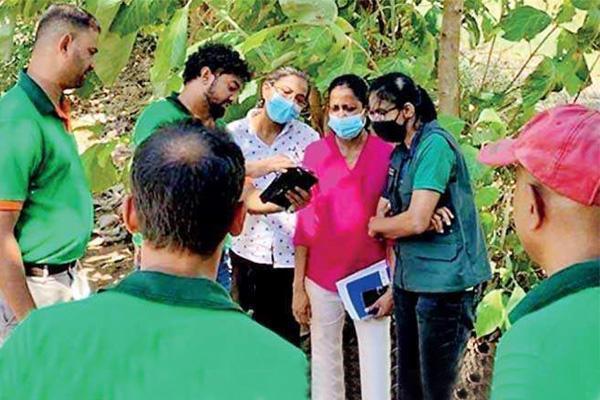

Vidatha Certification
Vidatha Certificate is issued by the Sri Lanka Standards Institution (SLSI) for complying with the requirements of Vidatha certification scheme specially for small and medium scale organizations. Vidatha Certificate assures adhering to the Good Practices during manufacturing/processing.
The scheme is open to both food and nonfood processors of small and medium scale organizations.
Vidatha auditing is conducted by a pool of experienced auditors of SLSI who are experts in various fields.
Vidatha Certification is the initial step for other certification schemes such as GMP, SLS Mark, HACCP, ISO 22000 and ISO 9001 certification
Requirements
- Establishment – Design, Facilities, Equipment, Cleaning & Sanitation, Pest Control, Personal hygiene, Transportation and Waste disposal;
- Process Control. -Suitability of raw materials, in process control, final product control;
- Product Conformity;
- Labeling and packaging requirements;
- Customer complaints, training and maintenance etc.
Benefits
- Less investment for certification
- Paves way for improvement
- Establish company reputation
- Increase consumer confidence
- Enhance competitiveness
- Improve the image of the Establishment
- Reduce customer complaints
- Use as a marketing tool for promotion of sales
- Improve Productivity
- Stepping stone to obtain the GMP, SLS Mark, ISO 9001, HACCP & ISO 22000 Certification.
ISO 21001:2018 Educational organizations — Management Systems for Educational Organizations (EOMS)
ISO 21001 is a quality management system that aims to standardize education management to ensure it meets learners' needs. It is intended to help schools, colleges, training providers and other educational organizations to implement the best practice. It is based on the widely followed ISO 9001 Quality management systems.
Management principles of ISO 21001:
- Focus on learners and other beneficiaries;
- Visionary leadership;
- Engagement of people;
- Process approach;
- Improvement;
- Evidence-based decisions;
- Relationship management;
- Social responsibility;
- Accessibility and equity;
- Ethical conduct in education; and
- Data security & protection.
Some benefits of ISO 21001:
- Better alignment of educational mission, vision, objectives and action plans;
- Inclusive and equitable quality education for all;
- Promotion of self-learning and lifelong learning opportunities; and
- More personalized learning and effective response to special educational needs.
For whom:
Applicable to any organization that uses a curriculum to support the development of competence through teaching, learning or research, regardless of the type, size or method of delivery.
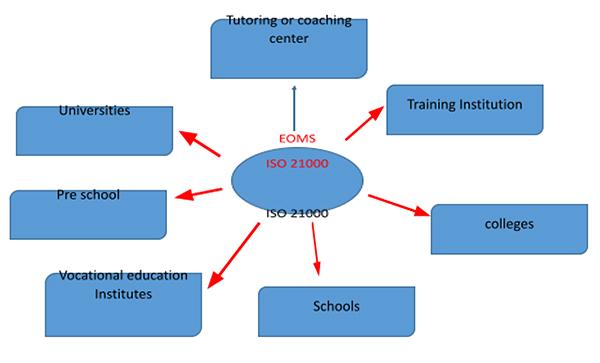
ISO 27001:2022 Information Security Management Systems (ISMS)
The Sri Lanka Standards Institution (SLSI) is proud to introduce the ISO 27001:2022 Information Security Management Systems (ISMS) certification under the stewardship of the Systems Certification Division. This globally recognized standard ensures the effective management of information security, enabling organizations to safeguard their sensitive data against threats and vulnerabilities.
What is ISO 27001 ISMS?
ISO 27001 is an internationally acclaimed standard for establishing, implementing, maintaining, and continually improving an Information Security Management System (ISMS). It helps organizations:
- Identify and address risks to information security.
- Safeguard confidentiality, integrity, and availability of information.
- Build trust with stakeholders by demonstrating a robust security framework.
Why Choose ISO 27001 ISMS Certification?
Certification to ISO 27001 provides multiple benefits, including:
- Ensuring compliance with regulatory requirements.
- Enhancing customer confidence in your organization's commitment to information security.
- Reducing the risk of data breaches and associated costs.
- Boosting your organization’s reputation in competitive markets.
How to Apply for Certification?
The application for ISO 27001 ISMS certification is now available on our official website. Organizations can download and submit the completed application form through the specified channels mentioned on the site.
Contact Us
For more information or assistance, please reach out to the Systems Certification Division:
- Email: dsc@slsi.lk ; karalliyadde@slsi.lk
- Phone: Office: 011 2019646, Mobile: 071 8619967
- Office Address: Sri Lanka Standards Institution, No.17, Victoria Place, Elvitigala Mawatha, Colombo 08.
Take the first step towards safeguarding your organization's information assets. Partner with SLSI for a seamless certification process and secure your future with ISO 27001 ISMS.






